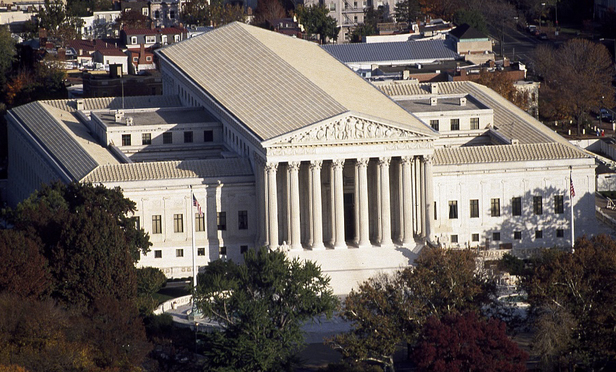The U.S. Supreme Court has an opportunity to overhaul its First Amendment jurisprudence in a case involving street signs in Arizona. For many years, the court has applied the First Amendment’s protection—”Congress shall make no law … abridging the freedom of speech”—with different levels of rigor depending on the type of speech involved. Political speech has long been regarded as the species of expression most deserving of protection, while governments have been given wider latitude to regulate other types of expression. Critics of this approach, like Justice Clarence Thomas, note the lack of any license in the text of the First Amendment itself for such distinctions. Supporters point to the Framers’ intent and the unworkability of subjecting all governmental regulations of expression to strict scrutiny.
In Reed v. Town of Gilbert, No. 13-502, a Phoenix suburb waded into this controversy when it attempted to regulate signs posted by a local church. The town of Gilbert regulates the display of signs to “assure proper and efficient expression through visual communication,” “to eliminate confusing, distracting, and unsafe signs,” and to “enhance the visual environment” of Gilbert. Gilbert’s sign ordinance classifies signs using 19 different categories; the three of particular importance in this case are temporary directional signs, political signs and ideological signs. Depending on a sign’s classification, Gilbert imposes different restrictions on its size, location and duration of its posting.
This content has been archived. It is available through our partners, LexisNexis® and Bloomberg Law.
To view this content, please continue to their sites.
Not a Lexis Subscriber?
Subscribe Now
Not a Bloomberg Law Subscriber?
Subscribe Now
LexisNexis® and Bloomberg Law are third party online distributors of the broad collection of current and archived versions of ALM's legal news publications. LexisNexis® and Bloomberg Law customers are able to access and use ALM's content, including content from the National Law Journal, The American Lawyer, Legaltech News, The New York Law Journal, and Corporate Counsel, as well as other sources of legal information.
For questions call 1-877-256-2472 or contact us at [email protected]



